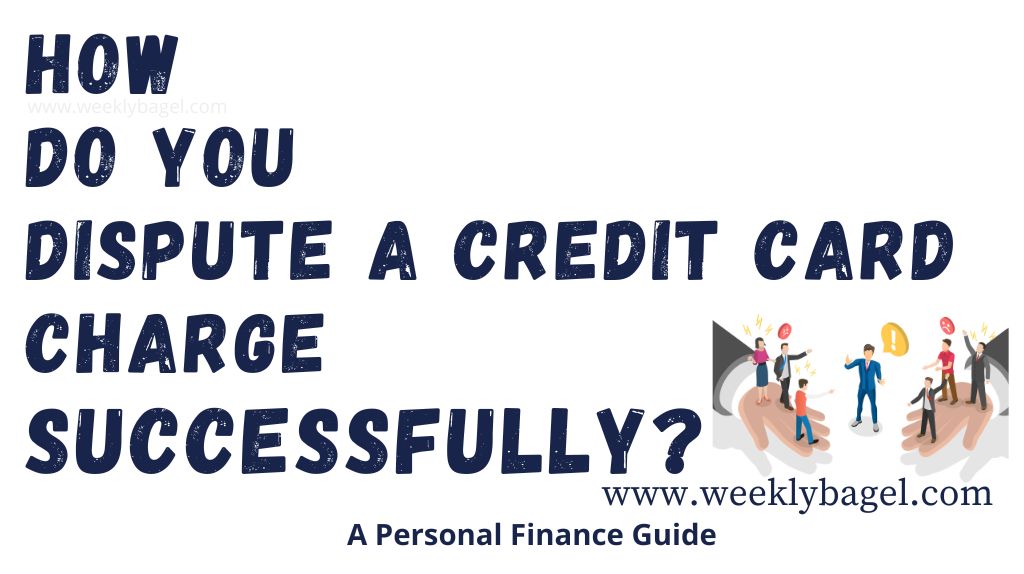
Unauthorized credit card charges are more common than you think. In fact, a Security Organization Survey has the number of affected credit card holders at 65%. It may be a result of credit card fraud, overcharges or unauthorized credit card usage. When it happens, you need valid reasons for disputing a credit card charge, in order to get your money back.
Why?
This is because credit card companies are out to make money. It is not in their business interest to lose money. For you to dispute a credit charge and win, you have to prove beyond reasonable doubts the transactions were not yours. Otherwise, your credit card company will not refund your money.
So, what qualifies as valid reasons for disputing a credit card charge?
The best way to win a credit card charge dispute is to make sure your reasons fall within one of the following categories below:
- Credit card fraud: an example includes someone using your credit card to make purchases without authorization.
- Unauthorized business charges: an example is a credit card abuse by a business. Or, erroneous credit card charge. It also includes charges for services not rendered.
- Stolen or lost credit card: an example is someone making transactions with your stolen or lost credit card.
- Outrageous hidden charges in credit cards not discussed under contract.
The above are valid reasons which will make it easy for a bank to refund unauthorized charges incurred on your credit card. If you contact credit card companies to dispute a charge outside of these reasons, it is going to be hard to win the dispute. This is because there are consumer and merchant rights, which protect both sides from potential fraud.
What Are Your Rights As A Credit Card Holder?
Before getting your first credit card, you must know your rights as a credit card holder to tackle issues like a credit card dispute. Your rights as a credit card holders is protected under the Credit Card Act. What is the credit card consumers act?
It is federal law under Fair Credit Billing Act, which protects you and holds a credit card company responsible in case of charges breaching contract. To simply put, this federal act prevents a credit card company from making you pay back unauthorized charges as a result of the three valid reasons I stated earlier.
You can read more on the Federal Trade Commission’s Credit Card Accountability Responsibility and Disclosure Act of 2009 (Credit CARD Act).
The credit card consumer rights ensure a cardholder can dispute a chargeback or a credit card charge. A few decades ago, credit card companies were notorious for taking advantage of American citizens. Particularly our young working class.
Today, they still use loophole to take advantage of vulnerable citizens despite the tight leash of the Consumers Right Act. I wrote about it on how credit card companies target college students as money Cows.
Then, it was difficult disputing a credit card charge. It was not, until these rights of credit card holders were made that it became easy to dispute credit card charge for services not rendered. These rights are the best piece of legislature ever made by the Federal legislative branch.
Without doubt, your credit card holder bill rights are extended to you each time you call to dispute a charge on your credit card. It is a law you should be very aware of. Know it by heart, my fellow working class American.
Disputing A Credit Card Charge
The credit card dispute process is one which requires you to present facts, rather than utilizing emotions to present your case. How do you dispute a credit charge, my good reader?
The easiest way to dispute a charge successfully, is to provide evidence of charges for services not rendered to you. Before you contact credit card companies to dispute a charge, make sure you have documents supporting your claim. Here is what I mean.
If your credit card is stolen, call the credit card company immediately to cancel. Note the time or date it happened and you called, so they can reference it during a dispute on fraudulent credit card charges. This is to protect you in case of credit card fraud.
Now, let us assume the worst case scenario had happened prior to you calling your bank to cancel the card. Let us say a huge amount of transactions had been done on the stolen or lost credit card. What do you say to dispute a credit card charge?
What To Say When You Dispute A Credit Card Charge?
Firstly, read your credit card company policy on transaction dispute to get an idea of what to expect. Call the customer service to report an erroneous or fraudulent credit card charges. Be sure to tell them the amount charged, the date and what the transaction was.
In addition to this, follow up the call with a letter to your credit card issuer. Make sure you have supporting documents to prove you do not authorize the charge. Federal law advices you write a letter within 60 days of informing the credit card company about the charges. Here is what your letter should have on it.
- Your name, account details and legal address. Do not include your social security number.
- The amount which was charged on your credit card.
- The date of the transaction.
- You must put the date the credit was stolen, if this seems to be the case.
Finally, this is a professional business letter. What this means, is you have to include copies of documents supporting your case. Also, you need to conduct yourself in a professional manner when disputing charge on credit card. This is regardlessly of the amount, which was charged on the card.
What Happens When You Dispute A Credit Card Charge
Now you have done your part, how successful are credit card disputes?
It depends on the credit card charge dispute process. You are more likely to win, when you can prove the charges are fraudulent and erroneous. This is why I recommended sending copies of proof supporting your claim to the issuer. It is the best way to win a credit card dispute.
Additionally, charges on a stolen or lost credit card reported promptly are refunded. This is especially, when you report it within the hour. Either way, it does not matter since credit card companies investigate each dispute and find out the truth out themselves.
But, be aware a credit card dispute can be denied. Usually, this is when a credit issuer finds out you are trying to get out of making a payment with a merchant as agreed on a contract. In this situation, it may be hard reversing credit card charges. You can read what not to do with your credit card to decrease the chances of incurring charges, which puts you in this situation.
Who Pays When You Dispute A Credit Card Charge?
In case of a stolen or lost credit card, your issuer will take care of any credit card charges not done by you. If there are pending charges prior to getting your card stolen or lost, you are still responsible for paying it back. This is because these were transactions done by you.
For unauthorized transactions by merchants, the chances of winning a credit card dispute depends on the amount of charges. You can call the merchant to discuss reversing credit card charges, however it does not mean the merchant will honor it. When you escalate it to your credit card issuer, your credit card issuer will try to determine the transaction is a fraudulent charge under the Credit Card Act.
If those were fraudulent charges, the issuer will try to reverse the charges. How often do merchants win chargeback disputes?
Well, it is a 50% chance. You may or may not win credit card dispute in this situation. It all depends on how good of investigators your issuer have, the way you present your case and what their dispute policies are too. This is why I always advise my readers on what to know before getting a credit card. That way, they do not apply for a credit card with an issuer who will not work with them in this situation.
How Long Do Credit Card Disputes Take?
Although there is a credit card dispute time limit, it differs from issuer to issuer. Usually, you have 60 days to dispute a credit card charge. I highly recommended this, to eliminate the excuse of being asked why you waited so long to file a report.
You are better off going through your credit card issuer dispute policy. Or even better, calling them to inquire about it. It is a good way of preparing yourself for the process.
On the whole, the sooner you dispute charges on credit card, the better the outcome with solid evidences. Also, disputing a charge will not hurt your credit. This is because you are protected by the Fair Credit Reporting Act. Do not be discouraged. It is your right as a credit card holder to dispute credit card charges.
Having written these, you can read about filing a Capital One credit card dispute. Or, just check out disputing a Chase credit card charge. These could help give you an insight on what to expect, when you file a charge dispute on a credit card at a bank.




 How To Graduate College Debt-Free: A Practical Guide
How To Graduate College Debt-Free: A Practical Guide